The Western Atlantic Climate Study (WACS) seeks to understand the role of marine sea spray aerosol in the Earth’s radiative budget. Our group recently participated in the WACS-2 cruise in the western North Atlantic aboard the R/V Knorr.
The goal of the WACS program is to characterize the properties of sea spray aerosol so we can understand its impacts on the Earth’s radiation budget. Colleagues at NOAA are deploying the SeaSweep, an instrument intended to replicate the production of sea spray from the ocean surface that allows sea spray aerosols to be collected and examined without interference from other aerosol sources (e.g., continental sources, secondary marine sources). ODU graduate student, Amanda Willoughby, participated in the cruise and collecting samples from sea surface water, ambient aerosols, and SeaSweep-derived aerosols so we can examine the relationship between the organic matter in the sea surface and in aerosols to understand which components of sea surface organic matter contribute to aerosols. We plan to measure organic carbon amounts and organic matter molecular characteristics (using 1H NMR spectroscopy and ESI-FTICR mass spectrometry) to elucidate these relationships. This information will allow an understanding of the relationships between the organic matter characteristics and the physical properties of marine aerosols measured by other members of the cruise so they can be used in climate models.




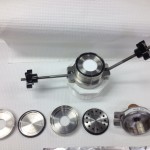
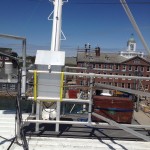

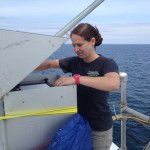
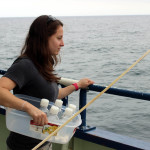
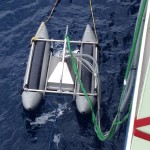
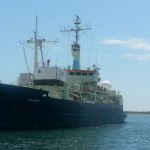
Recent Comments